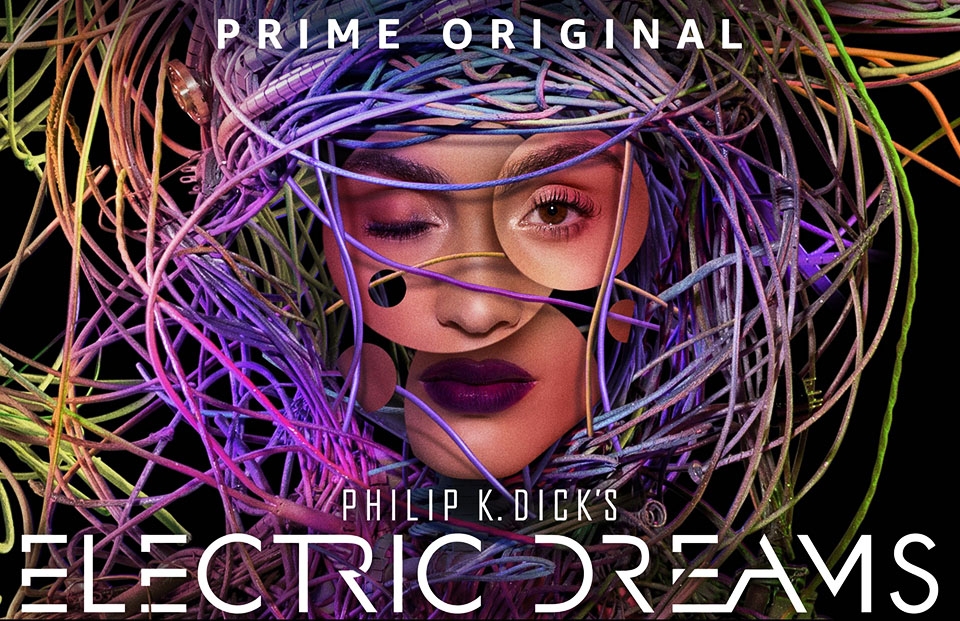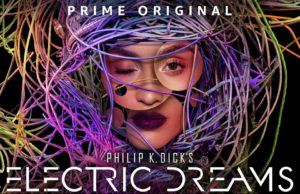

Electric Dreams originally premiered in the UK on Sept. 17, 2017, but it was not until Jan. 12, 2018 that it was brought to the U.S. via Amazon Video. The first season runs 10 episodes long.
By Ollie Gratzinger | Features Editor
01/25/2018
Well, it turns out Amazon Prime is good for more than ordering those pricey textbooks.
Joining the line-up of successful, thought-provoking Amazon Prime Original shows comes Philip K. Dick’s Electric Dreams, a science fiction anthology series based on the acclaimed author’s short stories. The episodes are all stand-alone installments, each chapter boasting new, innovative characters and plotlines straight out of the mind of Dick himself
Before starting off, I was apprehensive. With only 50 minutes to develop compelling charismata and eloquent, articulate narratives, I had my doubts that Electric Dreams could display the same poignancy and pathos as its long-form counterpart, The Man in the High Castle, Amazon Studio’s premiere Dick adaptation. Because High Castle has long since won my heart, though, I figured I’d keep an open mind.
Fortunately, Amazon delivered once again.
With an all-star cast of household names like Janelle Monáe, Steve Buscemi and Timothy Spall, Electric Dreams was already off to a promising start. What really made the series a cinematic power-hitter, though, was the way that episodes took the ideas existing at the core of Dick’s stories and expanded them, taking the viewer out of the Cold War and changing pace, commenting instead on contemporary society and current politics.
Episode One, “Real Life,” is based upon Dick’s 1954 Exhibit Piece, which follows the dystopian life of a self-delighted 20th-century historian, George Miller. In the original, George wakes up one day to find himself transported back in time to an existence he doesn’t recognize, but the longer he stays there, the more eerily familiar it becomes.
In Electric Dreams, George’s counterpart is Sarah (Anna Paquin), a futuristic super-cop struggling with survivor’s guilt after witnessing the murder of her colleagues in a failed police operation. Her wife, Katie (Rachelle Lefevre), offers her a virtual holiday to escape the PTSD-like effects of the whole ordeal, and in this so-called vacation, she wakes up as the billionaire CEO George (Terrance Howard).
With so much of science fiction dominated by the narratives of straight white men, Sarah and Katie were a welcomed change — and a great way to start the series. Take note, sci-fi writers: If aliens can exist in your stories, gay people can, too.
While some Dick purists might (wrongly) take issue with their favorite male protagonist being adapted into an emotionally damaged lesbian, the fact remains that no matter how vast the differences are between the original short stories and Amazon Studio’s Electric Dreams vignettes, critical themes remain untouched. Along with paying homage to Dick’s characteristic androids and epistemological meditations, the series aims to answer one overarching question: What does it mean to be human?
Each episode offers its own provocative supposition: To be human is to feel. To be human is to love. To be human is to destroy. Ultimately, though, the viewer is left with the impression that to be human is to be markedly complex — a leitmotif echoed throughout Dick’s work.
For as much as Electric Dreams says about the diametric nature of humanity and personhood, it speaks just as loudly on the topic of the political climate in which we find ourselves today. Don’t be fooled by the androids and aliens — Electric Dreams takes the far away concepts of science fiction and reels them into modernity with depictions of nuclear war, factory pollution, climate change, conformity, bigotry, totalitarianism and the dangers of unchecked power.
For example, the second episode, “Autofac,” follows a colony of rebellious settlers seeking autonomy from the self-governing factory that pollutes their air years after nuclear fallout. “Safe and Sound” shows the vices of a society so consumed by security that they scapegoat foreigners and label them as terrorists at the first chance they get. Sound familiar?
The series is steeped in allegories and metaphors, serving not only to entertain, but also to forewarn. It provokes a sense of unease, leading viewers to question whether or not our society could slip down the same rabbit hole. The future we see portrayed, while clearly science fiction, is not necessarily too far removed from a future that could actually happen. With fascism, rapid technological growth and nuclear war as underlying catalysts, it’s difficult not to draw hypothetical comparisons, and I believe that the show’s creators aimed to do exactly that.
As far as genuine critiques go, my concerns are few and far between. I wasn’t particularly thrilled about the intimate scenes in the first three installments, just because it felt almost like they interrupted the episodes’ otherwise seamless flow.
But aside from that, Electric Dreams has breathed new life into Dick’s surreal short stories, offering viewers distinctively human characters with relatable wants and conflicts, compelling plotlines, gorgeous cinematography, fitting soundtracks and a political edge right when the entertainment industry needs it most.
If you’ve got some time before the new season of your favorite show returns from the throes of post-production, give Electric Dreams a shot. Whether you like psychological thrillers, romance or pure science fiction at its finest, there’s bound to be an episode that captures your imagination.


